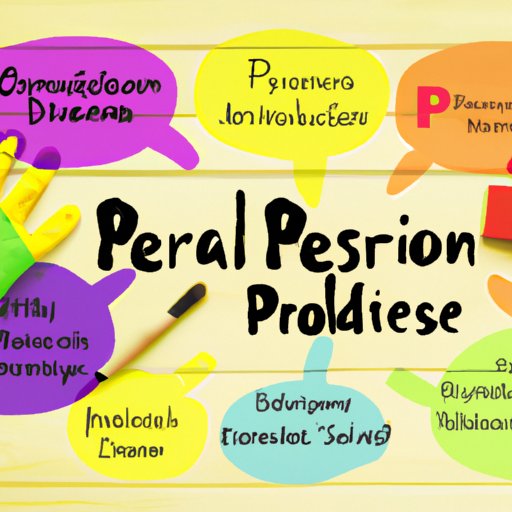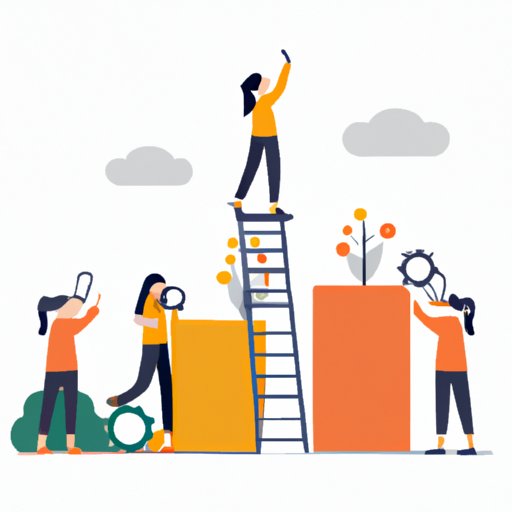Understanding Personal Social Development: Key to Success
Personal social development refers to the gradual process of learning how to interact and communicate with others. It encompasses a range of skills, including empathy, teamwork, effective communication, self-awareness, and personal responsibility. Personal social development is crucial throughout life, from childhood and adolescence to adulthood, as it enables individuals to form healthy relationships, make positive contributions to society, and thrive both personally and professionally. In this article, we’ll explore the importance of personal social development, and offer practical tips for nurturing these skills in yourself and those around you.
The Importance of Personal Social Development
Personal social development is the building block of success in all areas of life. Whether you’re a child learning to make friends, a student navigating social dynamics at school, or an adult seeking professional success, strong social skills are essential. Developing personal social skills can improve self-esteem, enhance emotional intelligence, and foster healthy relationships, both personal and professional.
Take a moment to consider some of the skills and benefits of personal social development. Effective communication skills can help you make your needs known, and allow you to articulate your ideas and thoughts clearly. Empathy helps you understand the perspectives, needs, and feelings of others, and strengthens your ability to care for and connect with people. Teamwork enables you to work cooperatively with others towards shared goals, while openness and cultural awareness help to embrace diversity and foster inclusivity.

Nurturing Personal Social Development in Children and Teens
Parents, teachers, and caregivers play a critical role in fostering personal social development in children and teens. In order to nurture these essential skills, young people need to be given opportunities to practice communication, cooperation, and empathy. Listening attentively and modeling good social behavior are effective strategies for promoting personal social development.
Enrolling children in family and extracurricular activities such as sports, arts, and clubs can help them develop social skills in a supportive environment. Encouraging conversation and active listening with peers and adults can help children to practice empathy, emotional regulation, and cooperation. Positive reinforcement, such as praise and recognition of personal accomplishments, can build confidence and encourage children to take pride in their social skills.
Exploring the Connection Between Personal Social Development and Mental Health
Good social skills are essential for healthy mental and emotional wellbeing. Social isolation and poor communication skills are linked to an increased risk of anxiety, depression, and other mental health disorders. Developing personal social skills, such as active listening, empathy, and effective communication, can not only improve personal relationships but also promote positive emotional and mental health outcomes.
Taking care of your mental health also involves developing strong relationships with others. This can include participating in social activities, volunteering, or joining clubs related to your interests. Investing in your social skills can help you to form supportive networks and foster positive interactions with others. Seeking professional counseling or therapy can also be an effective way to address personal social development concerns and improve mental and emotional wellbeing.
Personal Social Development in the Workplace: Strategies for Success
Strong personal social skills are essential for success in the workplace. Employees need to be able to communicate effectively, work collaboratively, and demonstrate leadership qualities in order to excel in their roles. Developing personal social skills can benefit employees in many ways, including increased productivity, greater job satisfaction, and improved career prospects.
Effective communication is key to success in the workplace. This involves not only speaking clearly and confidently but also the ability to listen actively to others. Teamwork is also crucial in any work setting. By working collaboratively with peers and colleagues, employees can solve problems more effectively and generate fresh new ideas. Cultivating leadership qualities such as self-awareness, emotional intelligence, and conflict resolution can also have a positive impact on workplace relationships and outcomes.
The Benefits of Personal Social Development in a Diverse World
Personal social development is crucial for promoting inclusivity, diversity, and compassion. By developing these skills, individuals can break down cultural and social barriers and foster positive relationships with people from diverse backgrounds. Social skills such as active listening, empathy, and open-mindedness can help us appreciate and understand other cultures and perspectives, create a sense of belonging, and promote mental and emotional wellbeing.
In today’s interconnected world, the benefits of personal social development are more important than ever. By promoting positive social skills, we can help to address critical social issues such as discrimination, marginalization, and inequality. And by nurturing personal social development in ourselves and others, we can build a more equitable and compassionate society for all.
Conclusion
Personal social development plays a critical role in personal and professional success. Developing social skills such as effective communication, empathy, and teamwork can have a positive impact on relationships and promote positive mental, emotional, and physical health outcomes. By investing in personal social development, we can foster a more inclusive and compassionate society, build stronger communities, and achieve our personal and professional goals.
(Note: Is this article not meeting your expectations? Do you have knowledge or insights to share? Unlock new opportunities and expand your reach by joining our authors team. Click Registration to join us and share your expertise with our readers.)
